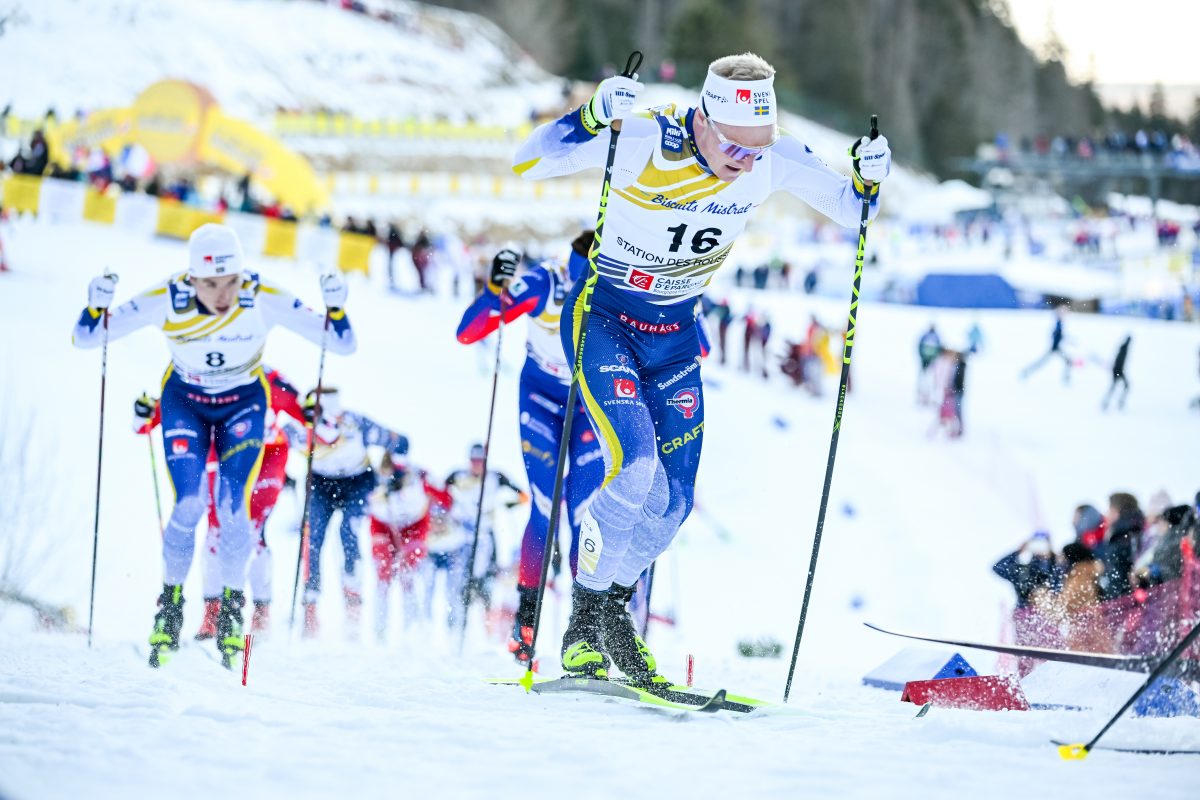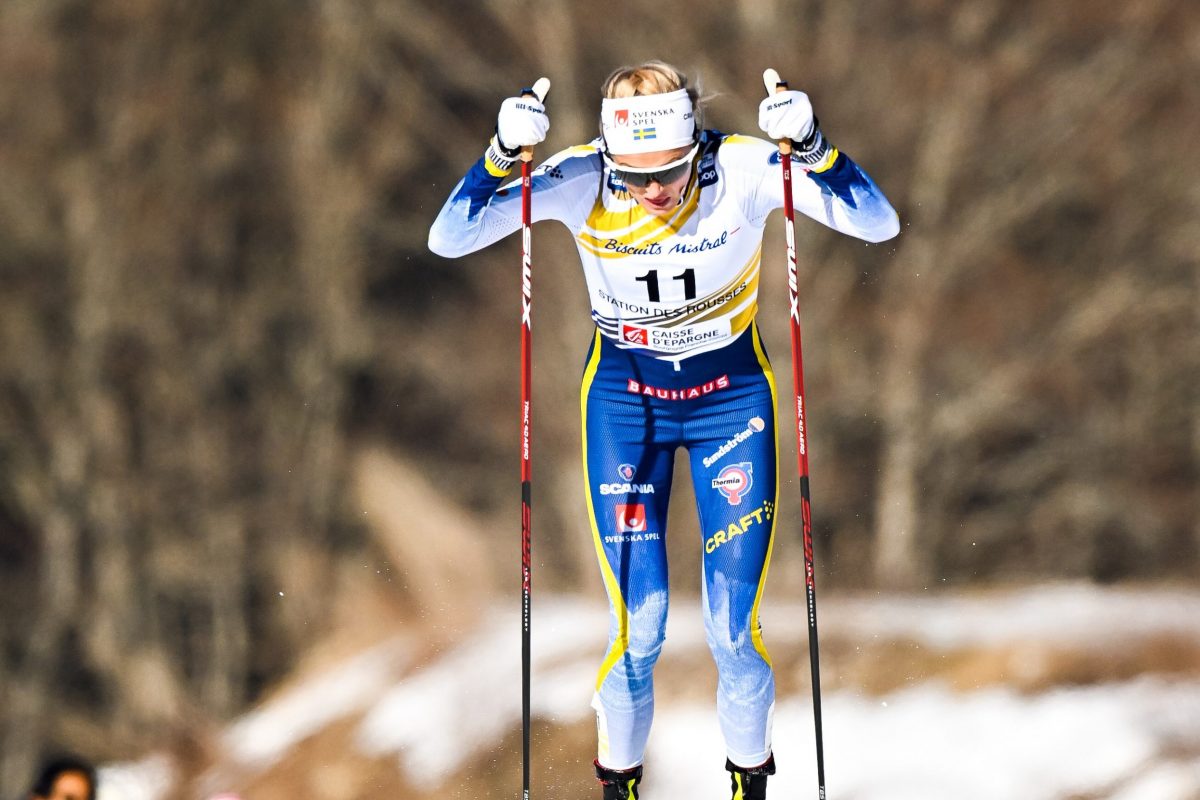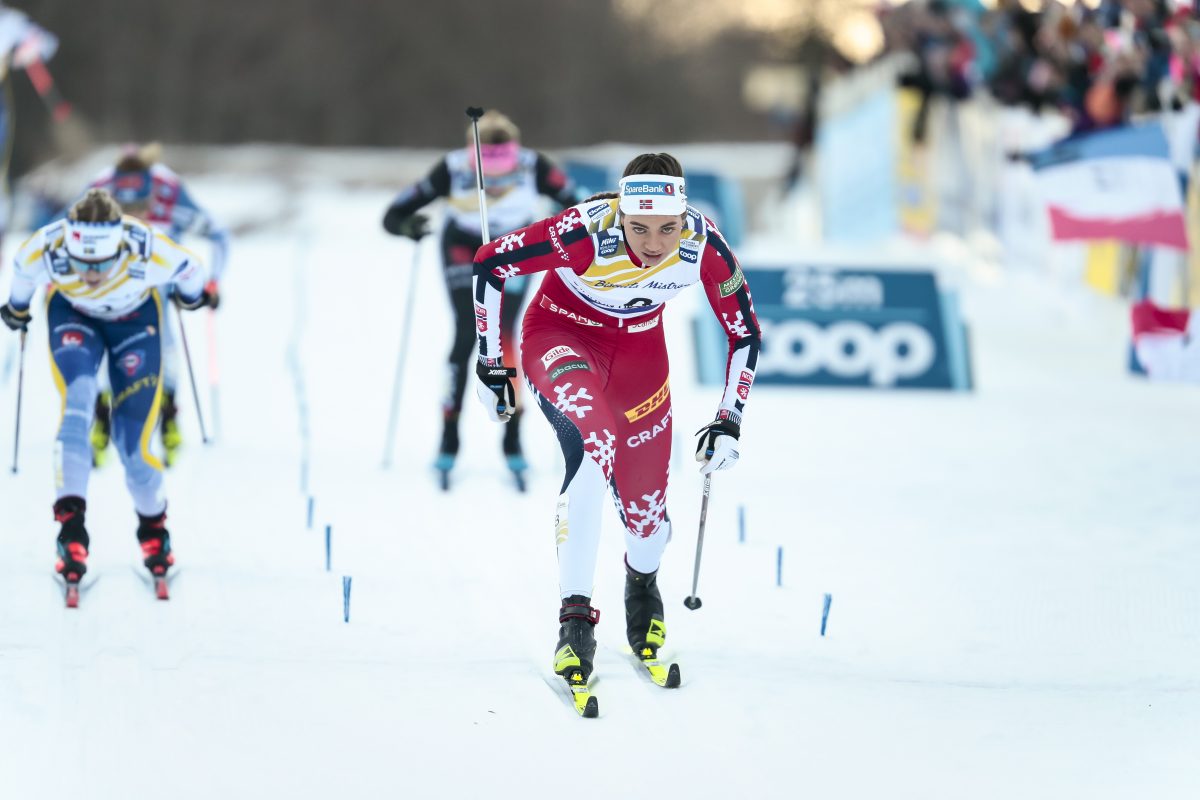
In July, we reviewed a recent paper summarizing research into how emotional intelligence is important for athletic success. It turned out to be one of the five most popular articles of the month.
Why so much interest? Besides physical training, mental and emotional training are keys to a winning trajectory. Sylvain Laborde, the researcher who penned the original review paper, defines emotional intelligence as “how people manage and deal with their own emotions, and with others’ emotions- so it’s both the personal and the other.”
Concepts included in emotional intelligence have helped athletes in the nordic sports find success already.
Last January Sean McCaan, a sports psychologist employed by the U.S. Olympic Committee to work with the biathlon team, said that one of the big things that he focuses on is resilience and how to manage emotions around failure, which is a big part of the volatile skiing and shooting sport.
“It’s been interesting to see that a lot of veterans on the team have learned through trial and error that being resilient, letting it go, allowing you expect good things to happen the next day – it’s absolutely essential,” McCaan said.
So with emotional intelligence so key to success and with so much interest by the ski community, we caught up with Laborde for a chat about his research and what it means for athletes. Laborde is currently a postdoctoral researcher at the German Sport University in Cologne.
This interview has been edited and condensed.
FasterSkier: What got you interested in studying emotional intelligence in relation to sports?
Sylvain Laborde: I started by studying sports psychology, and I did my PhD on the influence of emotions on decision-making. In sports, emotions play an extremely important role. Whatever sport you do, you can notice it at different levels. To be able to produce in a high-pressure competition, you can train that.
We have a symptom in sports that we call the “Training World Champion”, someone who can do everything at training, and as soon as it comes to competition it’s like nobody is there anymore. This has everything to do with emotions and stress management.
At our research institute, we have shown that emotional intelligence will act like a shield against stress. It’s like a protector… What is stress in the end? It’s just the way that you think about stress. If you think that stress is a threat to you, then of course it will have negative consequences. Emotional intelligence will make you appraise stressful situations more like a challenge that you have the resources to cope with.
FS: So is there a lot of variability in existing levels of emotional intelligence in different people?
SL: Yes. And those individual differences will be reflected in how we can observe that some people can cope with pressure, or others will be more likely to choke under pressure.
Very interestingly, at the biological level we can see a lot of differences in, for example, the way the heart is beating.
Let’s imagine a bottle. If this bottle is full, then I can regulate myself very well. People with high emotional intelligence will have high vagal activity going from the vagus nerve in the heart to the brain, and will help this person cope with anything in their environment. People will high emotional intelligence will have a bottle full of this vagal activity.
People with lower emotional intelligence will have a bottle half full of this vagal activity, and that means that in stressful situations they can’t use as much of this energy.
FS: And how is that connected to your heart rate?
SL: Basically, your heart can race much faster. It’s simplifying it, but the heart will have much more pronounced signs of stress when there’s low emotional intelligence.
At a similar level, we find things at the hormonal level. For instance cortisol, the hormone of stress. We can [test for] it in people’s saliva. So we had tennis players and we stressed them, and we found that people with higher emotional intelligence had lower cortisol.
Maybe you are familiar with this: if you are nervous when you have to speak in public, you notice that your mouth is dry. This is mainly because of the effects of cortisol.
FS: So is this one way that you can tell if you have high emotional intelligence or not?
SL: It’s just one parameter, but if you combine it with the heart, yes, you can have some idea.
I like it because we have hundreds, if not thousands, of questionnaires which claim to assess your emotional intelligence. But actually there are only a few which really do a good job. We can see that because we find links to those things in the body which I just explained. If they can’t do that, then they aren’t really helpful.
Then on the reverse, with those good questionnaires, it’s very interesting because by answering a couple of questions you can learn about how your body might react in stressful emotional situations.
[Note: Laborde later explained by email that one of the best questionnaires is the Trait Emotional Intelligence Questionnaire, by Dino Petrides of University College London. If you’re interested in taking it, you can find more information at http://www.psychometriclab.com and look at the options under TEIQue. The questionnaire takes about 30 minutes.]
FS: How do you study emotional intelligence? Is it a lot of observational study, or can you do experiments?
SL: We are trying to design experiments where we assess the emotional intelligence of athletes or students, and then we manipulate something. For example, we like to manipulate stress situations. Here are the German Sport University, we love to put people under stress. [laughs]
FS: What kind of stress?
SL: Normally in our experiments we try to include both low-pressure and high-pressure situations. Emotional intelligence doesn’t really play a role in the low-pressure situations, but as soon as we put people under pressure, yes, it does play a role on behavior, on the heart rate, on the cortisol. This can affect their performance at the cognitive or the motor level, specifically what they will do on the competitive field.
To give you some ideas, to induce pressure, we tell them that the results of the task or competition will be displayed publicly on the campus- which is of course not true, by the way. Or we film them and tell them that experts will analyze their performance. We can tell them during the experiment, “please don’t forget the camera, the camera is on.” Or we have a room with a one-way mirror, and we tell them that experts are currently watching them.
FS: How does emotional intelligence affect post-competition anxiety, and long-term performance and attitude?
SL: I believe that emotional intelligence has both acute effects, and long-term influences. It is highly linked to resilience.
No matter what the result of the competition, even if you are the winner, you still have to deal with being the winner and potentially being the favorite in the next competition. So that is pressure and needs emotional management. And if you lose, then emotional intelligence helps you to reconsider things, how and why things went this way.
It helps you to bounce back from failure, no matter what that failure is. In many sports, already the second position is a failure, because you didn’t win. You need to cope with that.
FS: What are you working on at the moment? What’s the next step?
SL: I’m actually very interested in those emotional intelligence trainings. All the emotional intelligence training that exists is not specific to sport. There are a few trials that I referred to in the review, but I’m not fully satisfied with them. So I tried to inspire myself from the work in general populations, and to try to integrate this into sport.
If you provide athletes with a specific emotional intelligence training, targeting for example emotional understanding, expressing emotions, perception of emotions, and so on, then yes, we can improve emotional intelligence.
The best emotional intelligence training so far was proven to decrease the cortisol reaction to stress not over a short period, but over a longer period of six months to one year. I believe it was a total of 15 hours of training over one month, plus some homework.
I want to prove to people that this kind of training for 15 to 20 hours can have a really significant effect on athletes’ emotional intelligence, and that this has a direct impact on how their body will react to the next competition.
FS: When you talk to coaches and athletes and teams, are they generally receptive to this idea?
SL: I have to say, indeed yes. In the first try I did, it was with a rugby team. In the beginning it was not easy. It was professional rugby players in France and they were not so open to the idea.
But I was working with the sports psychologist of the team, and as soon as the players saw that they were getting some very interesting feedback from their emotional intelligence result, some of them even said oh, last time I did the questionnaire I was watching TV and I didn’t do it very seriously, so can I do it again?
They understood after the first session that they could really get something out of this.
So we might still face some barriers which are due to the way that sports psychology is perceived. You see athletes who want to show that they are tough and that they don’t need mental training. That’s really the wrong approach.
FS: A lot of the very best athletes probably do very similar physical training; they are all at the top of their form. So is this the training that can make the biggest difference?
SL: If you ask a sports psychologist what makes the difference, at the end of a competition, between a gold medal, a silver medal, and a bronze medal, the amount of training is very similar between these athletes. They will differentiate themselves on very few variables.
The very top athletes, what differentiates them, is in the mind. You can see it sometimes. I like to think about tennis players, sometimes you see them doing very well but then they get to the end and they start to think too much. And then they lose the game. Then they lose the set. In the end they lose the match.
Chelsea Little
Chelsea Little is FasterSkier's Editor-At-Large. A former racer at Ford Sayre, Dartmouth College and the Craftsbury Green Racing Project, she is a PhD candidate in aquatic ecology in the @Altermatt_lab at Eawag, the Swiss Federal Institute of Aquatic Science and Technology in Zurich, Switzerland. You can follow her on twitter @ChelskiLittle.



